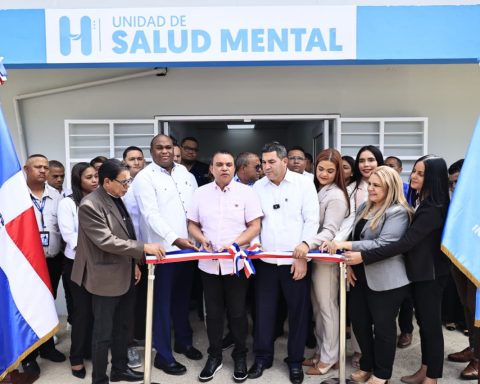The Ministry of Agriculture announced that today he will submit to the Senate the Ordinary Law of Agrarian Jurisdiction The purpose of this law is to grant judges and magistrates the power to exclusively resolve agrarian and rural conflicts in the country.
(See: Agriculture is growing, but not consistently)
The initiative It is part of President Gustavo Petro’s plans to comply with the 2016 Peace Agreementand seeks to ensure that agrarian conflicts are resolved peacefully by judges and magistrates, but also quickly and easily.
For his part, President Petro stated on his social networks that “Agrarian jurisdiction is a law derived from the peace agreements that are a unilateral declaration of State. I expect from the parties that decided to support the peace process of 2016, coherence in approving its legal consequences.”.
(Read more: Falling producer prices exacerbate the dairy crisis in the country)
Likewise, the agriculture portfolio confirmed the filing of the project, detailing that this is “a historic opportunity“to bring the judicial system closer to the peasantry and ethnic peoples, so that land-related conflicts are resolved in a differentiated manner.
Agrarian jurisdiction is a law derived from peace agreements that are a unilateral declaration of state.
I expect the parties that decided to support the 2016 peace process to be consistent in approving its legal consequences. https://t.co/1QJvQVrY5Z
— Gustavo Petro (@petrogustavo) August 27, 2024
ABC of agrarian jurisdiction
According to the Ministry of Agriculture, the principles guiding this bill are based on the actions of judicial authorities in the analysis and resolution of conflicts that reach the offices.
If approved, These principles should allow the overcoming of barriers in rural areas, faced by subjects of special constitutional protection in order to access the administration of justice in a timely manner.
(See also: Fedegán calls on the Ministry of Agriculture and the Ministry of Commerce to address the dairy crisis)
For example, judicial decisions of the jurisdiction must be guided by principles such as agrarian social justice,the protection of the weakest in agricultural production and tenure relationswell-being and good living, among others.
“Regulate agrarian reform, establish the rules that will regulate the way in which the Jurisdiction will function. The Colombian State has the obligation to regulate the Agrarian and Rural Jurisdiction“, they say.
The law or laws that implement the jurisdiction must include the structure and integration of the Agrarian and Rural Jurisdiction with the creation and composition of the Agrarian and Rural Courts and Tribunals; the principles that guide how agrarian judicial authorities should act; the powers of agrarian and rural courts and tribunals and the special agrarian and rural process through which conflicts that reach agrarian and rural courts and tribunals will be resolved.
(Read: Sectors that drive agricultural GDP are not in the interest of the Government)
Some government officials have interacted with the announcement, such as Iván Cepeda, who said that “Today more than ever, we need a justice system that defends rural rights. The Agrarian Jurisdiction is essential to ensure that justice reaches all rural communities.”.
Department of agriculture
Department of agriculture
Characteristics of judges
According to the portfolio, since the conflicts that arise in the countryside are different from those in the cities, it will be necessary for the jurisdiction to have new judges, trained to resolve conflicts that arise in rural areas from an agrarian and territorial perspective.
(See more: Call for applications for farmers under 35 years of age: what does it involve?)
Additionally, they argue that there should be agrarian judges who are familiar with the contexts and conflicts of rural Colombia, accessible to the peasant who requests the intervention of justice, with the power to mobilize and travel to the territories that require it.
“They must be able to make quick decisions and avoid delays; with sole and exclusive dedication to addressing the needs of peasants, workers and rural inhabitants in general for access to justice.“, says the Ministry of Agriculture.
(See also: Brazilian productivity displaces Colombian livestock exports)
In addition, they must have the capacity to resolve conflicts related to agrarian contracts such as sharecropping, evictions for de facto occupations, use of communal resources on agricultural lands, possession of private rural lands, agricultural easements and actions of the National Land Agency.


















